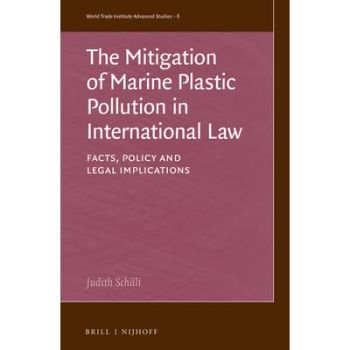
The massive accumulation of plastics in marine environments is one of the most pressing environmental concerns of our time. This book examines the relevant international legal framework applying to land-based sources of plastic pollution. Against the backdrop of the dynamics of recent policy formulation in this field, it outlines the main developments and provides a snapshot inventory of state obligations related to plastic pollution mitigation. The Mitigation of Marine Plastic Pollution in International Law identifies the main barriers and opportunities, and points out the possible building blocks of an enhanced regime.